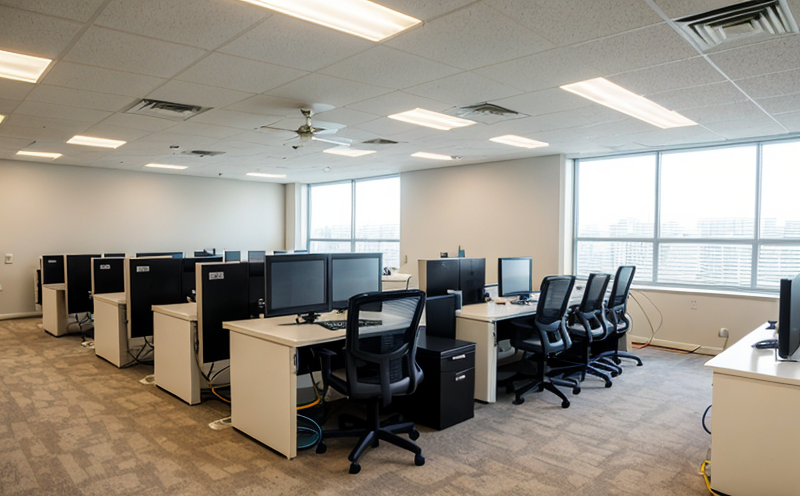UL 8750 Energy Certification Testing of LED Systems
The UL 8750 standard is a critical component in the certification process for energy-efficient lighting systems. This standard focuses on testing and certifying LED systems that meet stringent requirements for energy efficiency, safety, and performance. Compliance with this standard ensures that products are not only safe but also contribute positively to environmental sustainability efforts by reducing energy consumption.
The UL 8750 certification process involves multiple stages, each designed to assess different aspects of the product's design, manufacturing processes, and final performance. The testing protocols are rigorous and cover a wide range of parameters including power factor correction, harmonic distortion, maximum power dissipation, and thermal management among others.
For manufacturers aiming to achieve UL 8750 certification, thorough preparation is essential. This includes ensuring that the design adheres strictly to all specified requirements laid out in the standard. Engineers must pay particular attention to aspects such as LED driver efficiency, heat sinking materials used, and overall system design for optimal performance.
The testing procedure typically begins with initial inspections of manufacturing facilities followed by laboratory-based evaluations which may involve both benchtop tests and field trials depending on the specific requirements outlined in the standard. Benchtop tests usually focus on electrical characteristics whereas field trials assess how well the product performs under real-world conditions.
Once all required tests have been completed successfully, a report summarizing the findings will be generated detailing any discrepancies found during testing along with recommendations for corrective actions where necessary. Upon successful completion of this process and submission of appropriate documentation, UL can issue certification confirming compliance with UL 8750 standards.
Obtaining UL 8750 certification not only enhances market credibility but also opens up opportunities for broader adoption within key sectors like commercial buildings, residential spaces, street lighting installations, among others. By ensuring that your product meets these high standards early in the design phase can save time and money later down the line.
It's important to note that while UL 8750 certification provides significant benefits both commercially and environmentally, it does come with certain challenges too. For instance, meeting all criteria requires meticulous planning from initial concept through final production stages. Additionally, continuous monitoring post-certification is required to maintain compliance over time.
In summary, achieving UL 8750 certification involves comprehensive testing procedures aimed at verifying not only safety but also energy efficiency of LED lighting systems. Adhering strictly to the standards outlined in this document helps manufacturers produce products that are reliable, safe and environmentally friendly - key attributes sought after by consumers today.
Applied Standards
| Standard | Description |
|---|---|
| UL 8750 | This standard specifies requirements for the safety, efficiency, and performance of LED lighting systems. |
Benefits
Obtaining UL 8750 certification brings numerous advantages to manufacturers. Firstly, it enhances product reliability by ensuring that all components meet rigorous testing criteria throughout the manufacturing process. Secondly, it increases market competitiveness as certified products gain trust from customers looking for reliable solutions.
Additionally, obtaining this certification can lead to broader adoption within key sectors such as commercial buildings, residential spaces, street lighting installations, and more. This is because UL 8750 certification signifies adherence to recognized industry best practices which are increasingly being demanded by regulatory bodies worldwide. Lastly, it contributes positively towards environmental sustainability efforts by promoting the use of energy-efficient technologies.
Moreover, compliance with these standards helps reduce operational costs associated with electricity usage since certified products consume less power while maintaining high levels of performance and reliability. This can translate into significant savings over time for businesses operating large-scale installations like commercial buildings or street lighting networks.
International Acceptance and Recognition
- UL 8750 certification is widely recognized globally, particularly in North America where it serves as a benchmark for safety and energy efficiency standards.
- The standard enjoys acceptance not only within the United States but also internationally across various countries including Canada, Mexico, and parts of Europe.
- Achieving UL 8750 certification can help manufacturers tap into these markets more easily, opening up new business opportunities worldwide.





